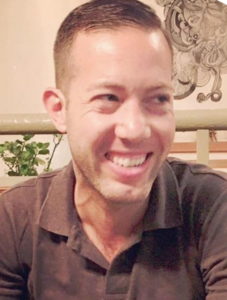During last week’s United Nations General Assembly in New York City, I attended one of the many events taking place, the Clinton Global Initiative conference.
Search less. Close more.
Grow your revenue with all-in-one prospecting solutions powered by the leader in private-company data.
I went with an interest in learning what organizations today are doing to face global challenges and found that early-stage entrepreneurs are leading that change.
Startups and change
Early-stage startups are playing an increasingly significant role in solving some of the world’s greatest challenges. In the past, startups doing good, and doing well, may have been relegated to the area of social impact. The onset, however, of a global pandemic, and the catastrophic impact of climate change has called for solutions that often governments alone may not be able to ideate, much less execute against.

Where a gap exists, some early-stage entrepreneurs have heeded the call in finding practical solutions to the world’s biggest problems.
During the recent UNGA (United Nations General Assembly), and particularly at conferences like the CGI (Clinton Global Initiative), global decision-makers, multinational corporations, nonprofits and social entrepreneurs came together to discuss practical solutions.
The feeling was that entrepreneurship is not just celebrated, but the way forward, particularly when entrepreneurs partner with government.
“The collaborative model is in fact the only true model that can lead to changes, government needs to be working with tech much early on to use their swift and agile abilities to help solve immediate problems but also predict and plan for those to come,” said climate tech expert Morielle I. Lotan, CEO and founder of MILE Ventures and Climate 180.
Lotan also attended the conference, but shared her comments with me via email when I followed-up after the event.
Global trends
Behind the backdrop of the usual political statements made by world leaders at the UNGA, the impactful topics of discussion included the climate crisis, food insecurity, and the refugee crisis.
For example, at CGI, the current refugee crisis struck a tone as the founder of Moderna, serial entrepreneur Noubar Afeyan, reflected during a panel discussion on how his family migrated to Canada as refugees having fled political violence in Lebanon. Other topics addressed at CGI included creating health and financial equality. The latter, which encompasses increasing opportunities for women and underrepresented groups, should touch a nerve in places like New York and Silicon Valley.
Jacques-Philippe Piverger, founder and managing partner of GoodLight Capital, connected with me at the CGI Entrepreneurship Greenhouse forum, and later reiterated via email the importance of embracing inclusivity when tackling global challenges:
“Startups need to be incredibly inclusive in order to have the brain power and relevance to solve consequential challenges,” said Piverger. “This means equity with respect to Women, Black, Hispanic, Asian, LGBTQ, veterans, and marginalized communities the world over. This is not a nice to have, but rather a first principle, must have!”
Startups creating global solutions
In contrast to the global organizations which took part at CGI, there was a focus on early-stage startups, and highlighting the entrepreneur’s journey.
Startups as early as pre-seed were showcased by the Hult Prize, an organization which funds young entrepreneurs finding solutions to pressing global challenges.
For growing startups, the CGI Entrepreneurship Greenhouse was the forum where they presented their solutions. Of particular note were startups which offered practical solutions to challenges including health equality such as Radical Health; an alternative to the use of plastics such as Loliware; and Nairobi-based KOKO Networks, which offers a consumer solution to liquid ethanol and helps reduce consumers’ carbon footprints.
With Climate Week taking place that week as well, climate tech startups making a global impact worth noting included Coral Vita, a social enterprise which grows resilient corals in months instead of decades to restore dying reefs. It was a winner of Prince William’s inaugural Revive Our Oceans Earthshot Prize.
Sam Teicher, Coral Vita’s co-founder, offered his thoughts via email after participating in a number of events taking place during the UNGA on how world leaders could work more effectively with social entrepreneurs:
Said Teicher: “From helping us build partnerships with local community leaders to developing and unlocking funding streams, to support ecosystem restoration, to streamlining permitting processes to ensure these rapidly dying habitats don’t suffer further from the additional burden of red tape, world leaders can play a hugely impactful role in helping environmental entrepreneurs solve these pressing challenges.”
Jonathan ‘Yoni’ Frenkel is a content strategist and founder of YKC Media, an agency which works with VCs, corporate executives, and startup founders.
Illustration: Li-Anne Dias

Stay up to date with recent funding rounds, acquisitions, and more with the Crunchbase Daily.







![Illustration of stopwatch - AI [Dom Guzman]](https://news.crunchbase.com/wp-content/uploads/Halftime-AI-1-300x168.jpg)


67.1K Followers